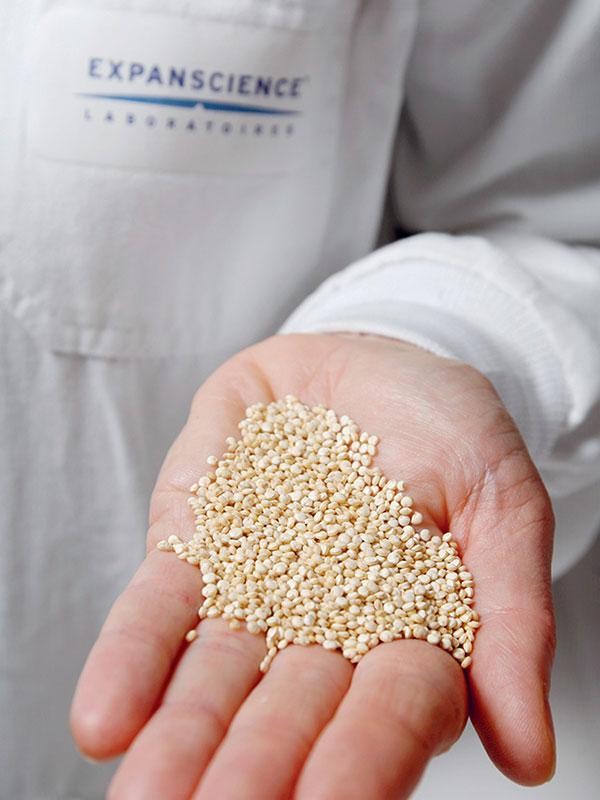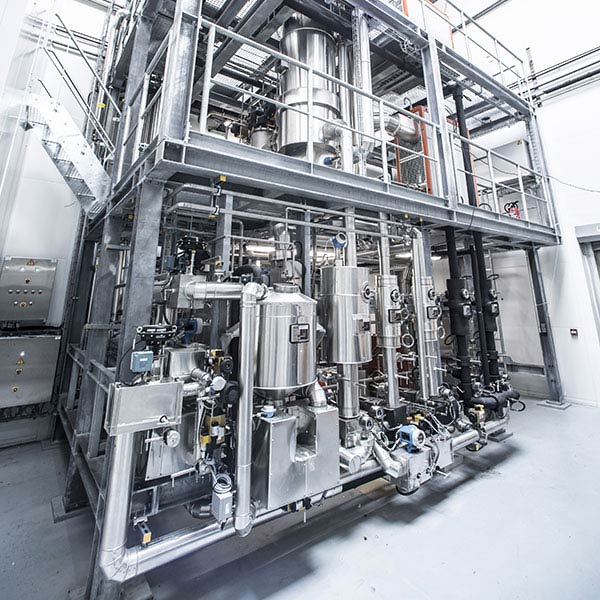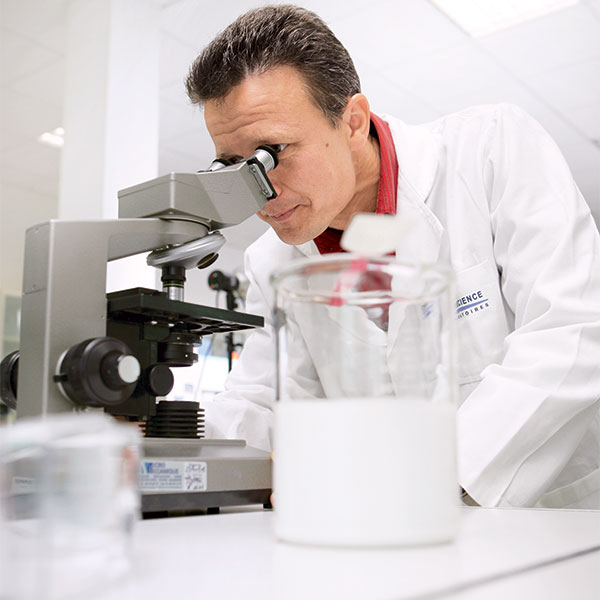Responsible innovation
For us, innovation means protecting plants and caring for the planet.

For us, innovation means protecting plants and caring for the planet.

From the beginning, plants have been at the heart of our innovations and the development of our cosmetic active ingredients. From our responsible raw material supply chains to the plant extraction processes we use to obtain natural active ingredients, we work to reconcile safety, naturalness and protection of nature.
This expertise results from the involvement of our Innovation, Research and Development (IR&D) team, made up of some fifty researchers who work toward the continuous improvement of our eco-processes. For this reason, we are known for our expertise in molecular distillation, a process for separating and concentrating key elements from plant oils. We also rely on biotechnologies like enzymatic engineering or extraction with plant-origin solvents, which enables obtaining reliable and effective active ingredients.
Since transparency and continuous improvement are essential for our company, we have our methods, subsidiaries and products evaluated and labeled by associations like the UEBT, which supervises protection of biodiversity and ethical trade rules. They are also certified by bodies like Ecocert according to references like Cosmos BIO or Fair for Life.

As you see, our goal is to develop techniques and procedures that provide greater protection for nature and for humans. This choice of “green” innovation is at the core of our competitive outlook. Because yes, we really do believe in responsible innovation!
To design skincare, you must first know the skin well. Our skin barrier expertise and our knowledge of the way in which the various skin layers develop is well established, and our research programs contribute strongly to reinforcing this know-how.
For 15 years, internationally known dermatology research workers have joined forces with our IR&D teams to carry out an innovative research program focusing on the skin of infants, starting at birth, and of pregnant women, known as EV.E.I.L.S. - Evaluation of Early Infant Life: the Skin. This has given rise to the elaboration of reconstituted baby skin models in the lab and resulted in major findings: the period from birth to two years of age constitutes a vulnerable period for skin maturation, characterized by an immature barrier function and a disrupted regulation of moisturizing mechanisms.


1,101
patents applied for worldwide since 1997

14
patents and 65 scientific publications for the EV.E.I.L.S. program
Our research has led to a better understanding of the various types of baby skin (normal, dry, very sensitive, with an atopic tendency), while enabling an identification of infant needs and proposing innovative products to treat them.
More recently, our studies have concerned the skin’s sensorial aspects and it’s relationship to emotion, so that we can understand the link between sensorial stimulations (like touch) and child development.
Did you know that formulation is one of the key steps in designing a dermo-cosmetic product? This is when the active ingredients are combined to give a care product its particular characteristics with constituents that provide a base, facilitate product application and ensure pleasurable use.
Our formulation strategy is based on a naturalness charter. We systematically give priority to natural-origin ingredients when they meet our requirements in terms of safety and effectiveness. Our Mustela products contain on average 96% of ingredients of natural origin. We have also developed a Mustela product range that is certified organic and vegan, and each line of Mustela care products for different types of skin contains organic active ingredients!


96%
natural-origin ingredients on average in our Mustela products

100%
of cleansing formulas in our Mustela products are biodegradable.
In line with our societal commitments, we develop our Mustela products and cosmetic active ingredients following an eco-socio design approach.
From the choice of the ingredients in our products to their recyclability, by way of their manufacture and use by our consumers, we act to reduce our environmental footprint to a minimum and reinforce our positive impact on human beings and society.
top of page